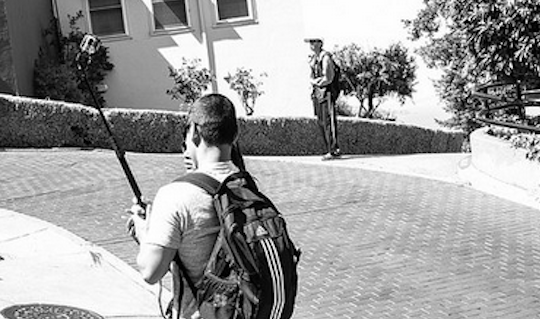Smithsonian Museums Ban Use Of Selfie Sticks, Still Encourage Selfies

(m01229)
When documenting a trip to the nation’s capital, tourists might enjoy having a few photographs of themselves against the backdrops of the memorials and monuments that fill the city. But if you were thinking of using a selfie stick to get just the right angle while posing in front of the Hope Diamond at the Natural History Museum, you might want to think again.
The Washington Business Journal reports that the Smithsonian, which operates 19 museums and galleries in Washington, D.C., Virginia and New York City, as well as the National Zoological Park, updated its security policy to include a ban on the use of selfie sticks.
A selfie stick, for those unfamiliar with the phenomenon, is essentially a long pole that holds a smartphone at one end, allowing users to get a better angle when taking self-portraits.
According to the updated policy, the ban on selfie sticks was implemented as a “preventive measure to protect visitors and objects, especially during crowded conditions.”
As with the institution’s ban on tripods and monopods, if you’re a member of the media and for some reason need to use a selfie stick, you must first get permission from the museum’s Public Affairs Office.
Of course the Smithsonian’s ban on selfie sticks isn’t an indication that the museums detest duck face photography. In fact, the institution encourages visitors to take “selfies and share their experiences” – just not by way of a selfie stick.
The Smithsonian’s ban on the sticks comes less than a month after a number of other museums – including the Cooper-Hewitt Smithsonian Design Museum, the Museum of Modern Art, and The Guggenheim, all in New York City, the Smithsonian’s Hirshhorn Museum in D.C. and the Getty Center in Los Angeles – implemented similar policies on the camera sticks.
Bringing a selfie stick to a Smithsonian museum? You’ll be asked to stick it … somewhere else [Washington Business Journal]
Want more consumer news? Visit our parent organization, Consumer Reports, for the latest on scams, recalls, and other consumer issues.

